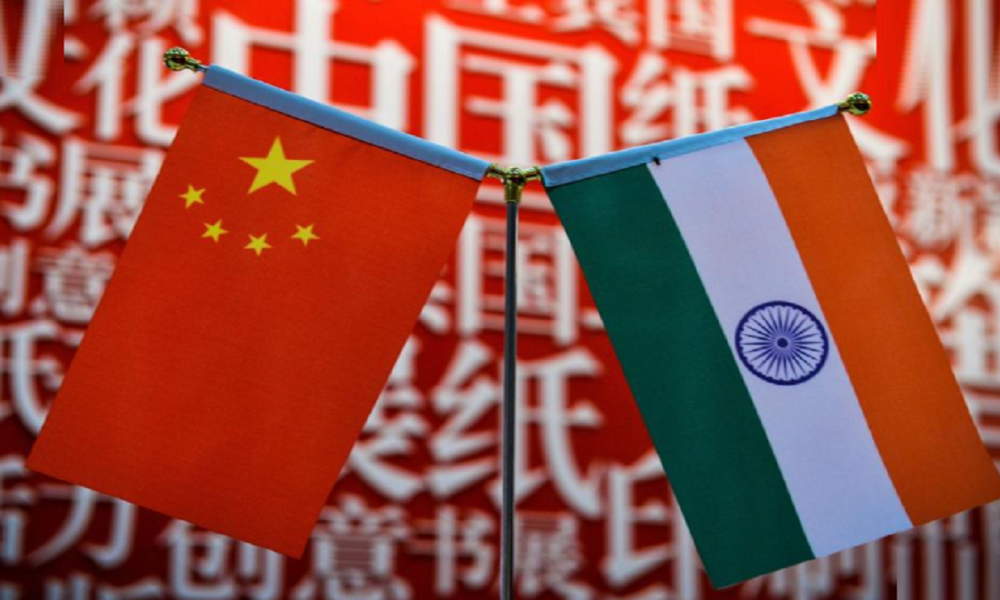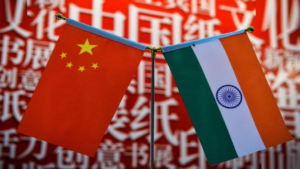India is currently facing a violent standoff with China that may lead to a limited war. There is a clear attempt from the Chinese side to intimidate India, create new ground facts along the Line of Actual Control (LAC) and grab Indian territory — all of which are guided by Chinese expansionist policies rooted in their civilisational vision of tianxia.
Since India, like China, is a civilisational state and the current Chinese threat is rooted in Chinese civilisational vision, it is vital that we examine whether we can derive any guiding principles from our civilisational texts to tailor our response to the present threat.
While evolving a comprehensive Indic strategy to Chinese threat is a multi-pronged process, we would limit our focus in this article to only one question: How should a ruler/government respond to external aggression?
Every government faces a huge dilemma in the face of external aggression on whether to militarily escalate the crisis or resort to diplomacy for de-escalation. The choice is never easy. However, a lack of conviction and clarity in thought and a lack of confidence in one’s own strength among the political leadership lead to obfuscation and indecision. This is a dilemma caused by despondency, a dilemma that affected the mighty Arjuna as well before the Mahabharata war.
When a Kshatriya parexcellence like Arjuna can feel the weight of dilemma caused by despondency, then it is not a surprise that we find the current Indian political class being affected by the same tendency.
It is interesting to note that Lord Krishna opens his response to Arjuna’s lamentations by straight-away delegitimising Arjuna’s concerns by calling it as being rooted in ignorance and petty weakness of the heart and designating it a sign of unmanliness (Bhagavad Gita 2.2-3). From this it becomes clear that in the face of aggression, there is no scope for endless negotiations, appeasement or indecision — all of which are rooted in ignorance and weakness.
How then should a government act in the context of aggression? What are the duties of the ruler in a warlike situation?
Hindu texts give considerable attention to “Raja-Dharma” or the duties of the king, with respect to both peace and war. In fact, Kautilya’s Arthashastra (7.1.2) designates waging war as one of the six elements of state policy. In verse 2.10.47, it speaks about four methods of diplomacy that a ruler must employ: Sama (negotiation), Upapradaana (inducement), Bheda (causing dissension), and Danda (war). Further, in verse 9.7.68, it suggests that in case of trouble from neighbouring rulers, one must adopt the policy of causing dissension and war.
Let us now look at some of the verses from Hindu Smritis regarding duties of a ruler in the face of external aggression.
“While protecting his people, if the king is challenged by enemies, either equal in strength, or stronger, or weaker, he shall not shrink from battle, bearing in mind the duty of the Kṣhatriya. Not shrinking from battle, protecting the people, and attending on Brahmanas — are the best means of securing happiness for kings.” (Manu Smriti 7.87-88)
“Neither for the sake of friendship, nor for the sake of a large gain of money, should the king let off the perpetrators of violence, who cause terror to all living beings.” (Manu Smriti 8.347)
“When who has been attacked by his foe, he shall protect, his own realm to the best of his power.” (Vishnu Smriti 3.43)
“A Kshatriya should, with weapons in hand, protect the earth righteously while ensuring the safety of his subjects by very strongly punishing (the evil doers) and by conquering the armies of the enemies.” (Parashara Smriti 1.57)
To summarise, in the face of external aggression, the Indic civilisational texts urge a government to:
1. Not shy away from a battle, when challenged by the enemy, either by way of stealth attack, propaganda, or direct aggression.
2. Employ all available means to subdue the enemy.
3. Never hesitate to use force, whether the enemy is superior, equal or inferior.
4. Never ignore or let go of the aggressor due to any considerations whatsoever — be it friendship or financial concerns.
5. Protection of the subjects by meeting external aggression with aggression, subduing the enemy by conquering their armies, their territories and inflicting complete defeat — these are considered duties of the ruler in power.
From this, it becomes clear that use of coercion and force is the only strategy left when facing an enemy who is aggressive and repeatedly causing troubles. This is echoed by Lord Krishna when he says: “There is nothing else better for a Kshatriya than a righteous battle. Happy are the Kshatriyas who come across this kind of a battle, which presents itself unsought for and which is an open gate to heaven. On the other hand, if you will not fight this righteous battle, then, forsaking your own duty and fame, you will incur sin.” (Bhagavad Gita 2.31-33)
That is, when an opportunity arises to fight a righteous battle, it is the duty of a ruler to fight the battle. When such a battle presents itself on its own, then the ruler is even more obligated to wage war. Not doing so implies forsaking of his duty by the ruler.
As for the current India-China standoff, Successive Indian governments have misread the Chinese. Instead of countering their expansionist designs, India has followed disempowering policies like non-alignment and appeasement of the enemy and projected itself as a weak state. The current standoff at Ladakh is a direct result of this continued appeasement policy.
However, if we were to resort to Indic civilisational ethos as our guiding light in foreign policy, then it is very clear that China has to be treated as an enemy state and Kautilyan methods have to be employed to subdue them.
The current standoff in Ladakh is a clear case of external aggression and a provocation for war and as such, our civilisational texts are very clear, the government must not shy away from giving a military response inflicting severe punishment on the enemy. Further, we must use this unsought war to proactively reclaim the geography we lost previously to China.
To not engage China militarily at this juncture not only constitutes a grave failure on the part of the government in discharging its supreme duty of protecting this country, but also constitutes a breach of trust of its people.
The writer is a practising Hindu, author, speaker and Editor of IndiaFacts. He is also Chief Curator, Advaita Academy. Aditi Banerjee, Priyank Chauhan and Rupam Das contributed to this article with their inputs.














